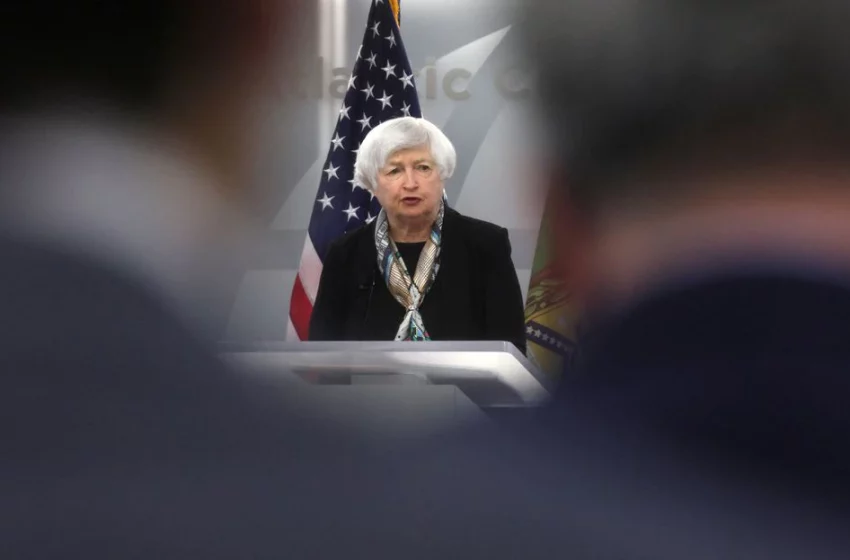
Exclusive: U.S. Treasury’s Yellen and trade czar Tai at odds over China tariffs
WASHINGTON, May 17(Reuters) – President Joe Biden will have to resolve a heated internal debate among his aides over whether to cut taxes on goods from China as his administration tries to battle inflation, according to two U.S. officials and three other people familiar with the conversations.
Officials within Biden’s administration have been debating for months the future of tariffs of up to 25% on hundreds of billions of dollars in imports from China imposed by former President Donald Trump that cost U.S. companies billions.
U.S. Treasury Secretary Janet Yellen is among those who want to slash many of these tariffs, while U.S. Trade Representative Katherine Tai wants to hold off for a broader China trade strategy that addresses protecting U.S. jobs and China’s behavior in global markets, sources say. This approach could even include new strategic tariffs.
The clear divide is rare in a White House that has made providing a unified front part of its bedrock approach to governing the world’s biggest economy.
Adding fuel to the debate, unions that are crucial to Democrats’ November campaigns are opposed to relaxing tariffs at this time, said one adviser. Biden personally told union leaders they would be involved in any final tariff decision.
Inflation spiked 8% over the last year, putting pressure on Biden and the Federal Reserve to push down costs on groceries, gasoline and other consumer goods. Biden’s Democrats face tough fights in November’s midterm elections to retain control of Congress. read more
The administration believes there are few short-term fixes for inflation – an issue that it initially hoped would be temporary – amid supply chain kinks, high labor costs, Russia’s invasion of Ukraine and China’s COVID-19 lockdowns. read more
Reducing tariffs is one of the last major steps they could take that could meaningfully cut costs, economists inside and outside the administration say.
Yellen has publicly said tariff cuts are “worth considering” for their “desirable effects” on lowering U.S. inflation, echoing comments by Biden’s deputy national security adviser Daleep Singh.
Yellen believes some of the tariffs are not in the U.S.’s economic interest and cost consumers irrespective of the inflation argument, according to a person familiar with the discussions.
The Peterson Institute for International Economics concluded that reducing China tariffs could cut inflation by as much as 1.3 percentage points, or $797 per household. Tai has publicly questioned those findings as “something between fiction or an interesting academic exercise” and called for viewing the tariffs through a “strategic lens.”

The Biden administration officially launched a review last month of the China tariffs imposed by Trump in 2018 and 2019. The tariffs started on $50 billion worth of strategic industrial goods to punish China for forced technology transfers and theft of intellectual property, but after China retaliated, they ballooned to $370 billion, covering t-shirts, bicycles, toys, flooring and other goods.
That review could take months, with a public comment period between July 5 and Aug. 22 before any final decision is made. read more .
Some trade experts say a faster way to provide inflation relief is to broaden the number of exclusions granted to importers of Chinese goods. Thousands of these expired as Biden took office, but Tai has only revived exclusions on 352, and over 140 U.S. lawmakers have called for the list to be expanded. read more
Political advisers have been divided, too, with some seeing risks of alienating labor unions or other China hawks in key political battlegrounds, and others arguing that removing tariffs to lower inflation would have broad support in a country where rising costs has become the primary political issue.
Tai believes the disposition of the China tariffs needs to be decided as part of an overall trade strategy with China that takes a more strategic approach, said a person familiar with the conversations. A rapid, unilateral move was unlikely.
The divide between Yellen and Tai is likely to force Biden to make a decision by mid-summer, according to one person in touch with administration officials.
Additional reporting by Jarrett Renshaw; Editing by Heather Timmons and Richard Pullin






